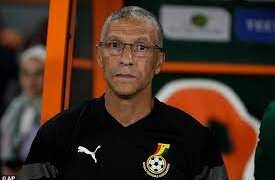By Morkporkpor Anku, GNA
Accra, Nov. 6, GNA – Management of Crime Check Foundation (CCF), a Prison NGO, has appealed to President Nana Akufo Addo to exercise his prerogative of mercy in the granting amnesty to prisoners waiting to be pardoned to decongest the prisons.
Mr Ibrahim Oppong Kwarteng, Executive Director of CCF, said since coming into office, the President is yet to grant amnesty to prisoners.
He said much as the granting of Amnesty is a prerogative exercised by the President and the President alone, “we believe that the current state of our prisons calls for an amnesty.”
Mr Oppong Kwarteng was speaking on Tuesday at a news conference on the developments within Ghana’s prisons system, which demand urgent attention from government and other stakeholders in the criminal justice system in Accra.
He called on the President to use his prerogative of mercy to exercise a moral obligation that would lead to the decongestion of the country’s prisons and save inmates due for pardon, the pain they continue to harbour after years of waiting to be considered for pardon.
He said as development agents, the Foundation believes the media has a critical role to play in ensuring that these observations, some of which border on human rights infractions, were brought to the attention of government.
He said the country’s 42 prisons lack the requisite gadgets to effectively detect contrabands finding its way into the prisons and the result was that it paves way for miscreants to smuggle all manner of illegal substances into the prisons.
He said such a situation defeats the reformation and rehabilitation agenda of the prisons and makes the prisons a breeding ground for miscreants.
“It also produces on our streets hardened ex-convicts, who eventually come out to join criminal groups to inflict more mayhem on the public.” he added.
The Executive Director said “if we want to ensure that prisoners are completely reformed and rehabilitated, then government should as a matter of urgency equip the Prisons Service with scanners to enable it deal with the issue of contrabands.
Mr Oppong Kwarteng, who is also the Ambassador Extraordinaire of Prisons, recommended that government should appoint a Chief Inspector of Prisons as pertains in other democratic jurisdictions.
He said this would ensure effective oversight of the prisons to curtail possible abuses of the rights of prisoners.
He said such an office, which should be insulated from political control would ensure that the Chief Inspector of Prisons conduct periodic visits to the prisons, report on conditions and treatment of prisoners, bring to the attention of government, the harsh reality in prisons, all too many of which were dangerous for prisoners and staff alike.
He said as signatory to international treaties and conventions on human rights, “we believe such an appointment will help fast track the needed reforms in the criminal justice system and position the prisons as purely correctional institutions.”
On privatization of prisons, the Ambassador said it comes with its own challenges, but under the current state of the prisons, where budgetary and other constraints have affected the reformation and rehabilitation agenda, it would not be out of place for government to reconsider privatizing some of the prisons to reduce the numerous challenges being encountered by the Prisons Service.
On the issues of missing dockets and writing of statements for accused persons, he appealed to the Attorney General to urgently address this issue that bothers on the human rights of prisoners, since any attempt to deny such inmates access to appeal their sentences because of missing dockets amounts to undermining their human rights.
He said as a country that prides itself as the champion of human rights, it is important that prisoners no matter the level of their crimes are given the opportunity to be re-heard in court.
He also called on the Police administration to put in place an audio and video recording system that would allow judges to have access to undiluted information from accused persons.
GNA


































